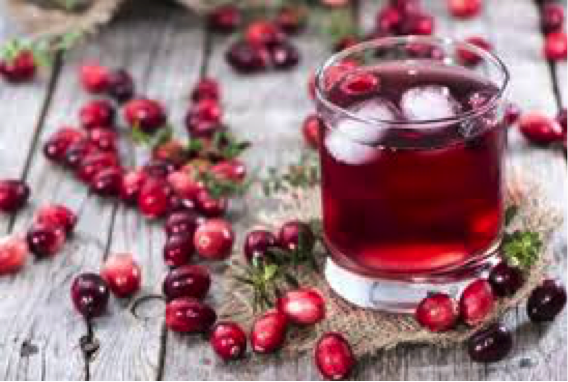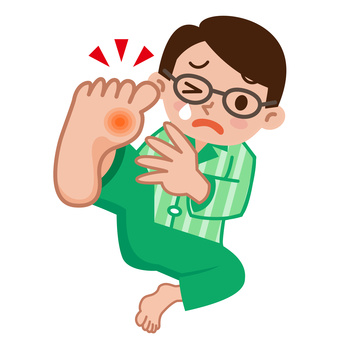
by Sharica Brookins, M.D
Cranberries a day can keep a urinary tract infection (UTI) away. Only part of that statement is true. Yes, daily cranberry capsule or juice may do this. However, it works for recurrent common UTIs when taken for 6 months and it is mostly beneficial in young and middle-aged women.
Urinary tract infections can be a major public health concern depending on the age of the population, extent of the infection and bacterial strain. However, it is the most common infection among young, healthy women.
Most urinary tract infections in healthy women are confined to the urethra or bladder and are of the E. Coli strain.
A more serious UTI can consist of a resistant strain of bacteria, fungal or even viral organism. These typically exist in immune suppressed individuals and those with structural abnormalities, and can extend to the kidneys or even the bloodstream.
For a long time, natural remedies have been studied for UTI treatment and recurrence prevention. In particular, cranberries.
The bacteria of a UTI is known to adhere to the urothelial cells of the urinary tract system (cells that make up the lining of the bladder and urethra) causing symptoms and infection.
A cranberry extract known as Proanthocyanidins has been found to prevent this mechanism thus aiding in prevention of recurrent UTIs. There are no studies that have produced results in which this extract can be used to treat a UTI.
Many different studies have looked at the various forms (powder/capsule, dried and juice) but there is not a standard recommendation for prevention dose and frequency.
Women & Cranberries
As the most common group affected by UTIs, healthy women have been studied the most. A meta-analysis published in the Journal of Nutrition reported that there are only about 7 controlled trials that looked at recurrent UTI prevention with cranberries in healthy women.
However, these studies were biased and did not have a large amount of participants therefore its effectiveness is questioned. More large clinical trials are needed.
There was a more recent completed clinical trial called PACCANN in healthy non-pregnant women to determine the optimal dose (37 mg/day versus 2 mg/day) of cranberry Proanthocyanidin extract for a 6 months course. The results have yet to be published.
Pregnant women are the most susceptible group of young women with recurrent UTIs. Pregnant women have been studied for cranberry prevention of recurrent UTIs but without enough strong evidence to recommend its use.
The common side effect that pregnant women complained of when taking the cranberry was upset stomach.
Children & Cranberries
In 2015, the Annals of Pharmacotherapy published 8 clinical trials that were studied looking at the use of cranberry to prevent recurrent UTIs in children. All the trials used cranberry juice. A few looked at healthy children while most studied children with structural abnormalities.
These studies used various doses and frequency, therefore there are no universal recommendations. There is also the use of cranberry extract for uncircumcised boys with recurrent UTIs.
A Taiwan study even revealed that the preventative benefits are better in uncircumcised compared to circumcised boys.
Men & Cranberries
Men with prostate problems are at an increased risk for recurrent UTIs due to procedures and certain treatments.
Research and Reports in Urology published findings in 2017 about men with prostate cancer undergoing radiation therapy who took an enteric coated, highly standardized cranberry extract and had half the risk of developing a UTI compared to those who took no cranberry extract.
Similar results were noted in a 2016 study of men with benign prostate hyperplasia (BPH).
Elderly & Cranberries
The elderly are considered a vulnerable population regarding urinary tract infections. Whether it be because of antibiotic resistance, emptying their bladder less frequent, long-term catheters, hygiene or multiple urologic procedures. They are at high risk for E. Coli UTI and also for more resistant strains.
Does cranberry prevention work the same in the elderly? Cranberries could provide an alternative that is safer than chronic low-dose antibiotics, less side effects, and decreases chances of drug-resistance in the community.
Unfortunately, there is not enough supporting evidence to show appropriate dose or effect of cranberry prevention of UTI in the elderly. Also interestingly, Journal of the American Geriatrics Society published a study that reported cranberry capsules to be less cost-effective for UTI prevention in long-term care facilities for both high and low risk residents.
Signs & Symptoms
The common symptoms of a UTI include increased frequency to urinate, burning with urination, pelvic pain and/or fever. Some people may experience no symptoms but a UTI may be diagnosed on routine test.
They are diagnosed with a dipstick urine sample and urine culture to specify the bacteria. The complicated UTIs (involving fever and other organs) generally occur in pregnant women, males, people with long-term catheters, immune-suppressed individuals, nursing home residents, prostate procedures and those with certain kidney stones.
Potential Risks
Recurrent UTIs can result in kidney scarring and lead to chronic kidney disease. If you are not currently taking prophylactic cranberry extract, I recommend getting as many details as possible about the brand that you are interested in and have it reviewed before starting it. This can be done with a physician or nutritionist.
The highly standardized brand that was used in some studies contain 36mg of proanthocyanidins and 120mg of cranberry.
Also, 20 ounces of cranberry juice is known to contain 72mg of proanthocyanidin. I encourage you to consult an expert for any possible interactions with other medications.
 (Sharica Brookins, M.D., is a Nephrologist at Remote Renal Care. Remote Renal Care is a virtual medical practice that provides all forms of kidney care to rural patients. Dr. Brookins has been licensed and practicing in Georgia for 2 years.
(Sharica Brookins, M.D., is a Nephrologist at Remote Renal Care. Remote Renal Care is a virtual medical practice that provides all forms of kidney care to rural patients. Dr. Brookins has been licensed and practicing in Georgia for 2 years.
As a young physician in her field she is passionate about innovation in the delivery of care, transplantation & dialysis. She completed a renal fellowship at Vanderbilt University Medical Center in Nashville, Tennessee. Dr. Brookins is a published author in the peer-reviewed medical journal Kidney International. She also enjoys being a new mommy, farmer’s markets and cooking.)





